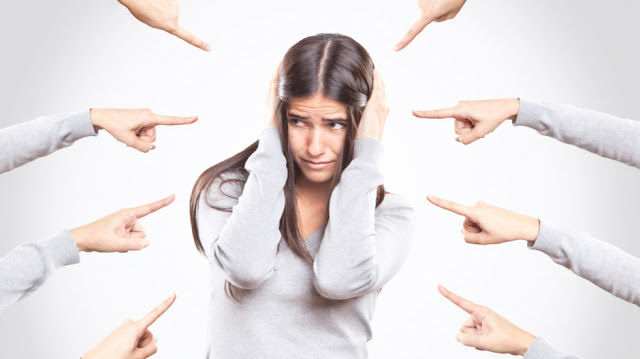Why Do People Blame Others for Issues They Have Created?
Blame is a common human response to failure, disappointment, and conflict. It's an easy way to deflect responsibility and protect one’s self-esteem. However, chronic blaming can lead to strained relationships, stunted personal growth, and a lack of accountability. Let's explore the psychological and social reasons behind why people often blame others for their own issues.
Self-Defense Mechanism
One of the primary reasons people blame others is to protect their self-image. Accepting responsibility for mistakes or failures can be painful and damaging to one’s self-esteem. By shifting the blame, individuals can avoid facing their shortcomings and maintain a positive self-perception. This defense mechanism helps them avoid the emotional discomfort associated with guilt and failure.
Social Influence and Culture
Society and culture play a significant role in shaping behavior and attitudes. In cultures where there is a strong emphasis on individual achievement and success, failure can be seen as a personal flaw. To avoid the social stigma associated with failure, people may blame others. Additionally, in environments where blame-shifting is common, such as toxic workplaces or dysfunctional families, individuals may learn to adopt similar behaviors.
Cognitive Dissonance
Cognitive dissonance refers to the mental discomfort experienced when holding two conflicting beliefs or attitudes. When people’s actions do not align with their self-image or values, they experience cognitive dissonance. Blaming others helps reduce this discomfort by creating a narrative that external factors, rather than personal faults, are responsible for the negative outcome. This way, they can maintain a consistent and favorable self-image.
Lack of Emotional Intelligence
Emotional intelligence involves the ability to recognize, understand, and manage one’s emotions, as well as the emotions of others. People with low emotional intelligence may struggle to cope with their own mistakes and negative emotions. Blaming others becomes a way to deflect these uncomfortable feelings. Developing emotional intelligence can help individuals take responsibility for their actions and learn from their mistakes.
Learned Behavior
Blaming others can be a learned behavior from early childhood experiences. If children observe their parents or caregivers frequently blaming others for their problems, they may adopt similar behaviors. Over time, this pattern becomes ingrained, and individuals continue to use blame as a coping mechanism in adulthood.
Fear of Consequences
Taking responsibility for one’s mistakes often comes with consequences, such as punishment, loss of reputation, or financial repercussions. To avoid these negative outcomes, people may resort to blaming others. This is particularly common in high-stakes environments, such as the workplace, where the consequences of admitting fault can be severe.
Ego and Pride
Ego and pride can prevent individuals from acknowledging their mistakes. Admitting fault can be seen as a sign of weakness or incompetence, which threatens their self-esteem and social standing. Blaming others allows them to protect their ego and maintain a sense of superiority.
Avoidance of Conflict
Blaming others can be a way to avoid direct confrontation and conflict. By deflecting responsibility, individuals can sidestep difficult conversations and potential disputes. However, this often leads to unresolved issues and long-term relationship problems.
Overcoming the Blame Game
Recognizing the reasons behind blame-shifting is the first step towards overcoming this destructive behavior. Here are some strategies to foster accountability and personal growth:
- Develop Self-Awareness: Reflect on your actions and their consequences. Understanding your role in a situation can help you take responsibility and learn from your mistakes.
- Cultivate Emotional Intelligence: Work on recognizing and managing your emotions. Practice empathy to understand how your actions affect others.
- Create a Supportive Environment: Surround yourself with people who encourage accountability and personal growth. A supportive environment can help you feel safe in admitting mistakes.
- Practice Mindfulness: Mindfulness techniques can help you stay present and reduce the tendency to react defensively. This can lead to more thoughtful responses and less blame-shifting.
- Seek Professional Help: If blame-shifting is deeply ingrained, consider seeking the help of a therapist or counselor. Professional guidance can help you develop healthier coping mechanisms.
Blaming others for our own issues is a natural but unproductive behavior. By understanding the underlying causes and working towards personal growth, we can break free from the blame game and foster healthier relationships and a more fulfilling life. Taking responsibility for our actions not only promotes personal development but also builds trust and respect in our relationships.
Let's strive to create a culture of accountability and self-awareness, where blame is replaced with understanding and growth.

Comments
Post a Comment